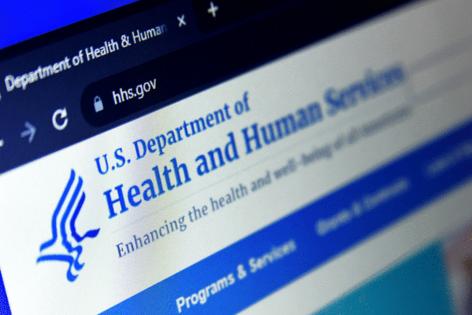US fires top health official who opposed widely used Covid shots
Published in News & Features
A top biosecurity adviser at the Department of Health and Human Services who believed messenger RNA Covid vaccines should be taken off the market was fired over the weekend, an agency official said.
Steven Hatfill, a virologist who advocated for unproven Covid-19 treatments like hydroxychloroquine during the pandemic, served for six months as a senior adviser at the Administration for Strategic Preparedness and Response. The agency is responsible for preparing the U.S. against potential threats from bioweapons and new infectious diseases, as well as stocking the country’s emergency medical cabinet.
HHS said Hatfill incorrectly claimed to be the chief medical officer at ASPR, and wasn’t effective in cooperating between government agencies and with department leadership.
Hatfill didn’t respond to multiple requests for comment about his exit.
ASPR remains without a Senate-confirmed leader. HHS Secretary Robert F. Kennedy Jr. has outlined plans to break apart the division in a reorganization. Dozens of staffers, including some working on biodefense, have been laid off during the U.S. government shutdown.
In a move that drew criticism from public health experts, HHS canceled all messenger RNA research related to vaccine development at a division of ASPR earlier this year. Hatfill defended the decision publicly.
On political strategist Steve Bannon’s show in August, Hatfill’s title was listed as chief medical officer at ASPR. A public directory of HHS employees lists Hatfill as a senior adviser at the agency.
On Bannon’s show, Hatfill claimed that mRNA vaccines create “biochemical havoc” in the body and that Covid vaccines weren’t properly studied by drug companies. He called spike proteins produced in response to mRNA Covid vaccines “a biologically toxic molecule” that could cause neurodegenerative damage and hurt fetal brain development in a paper published this spring.
Anti-vaccine activists have claimed that mRNA vaccinations result in long-term circulation of spike proteins in the blood, leading to negative health effects. They claim spike proteins accelerate cancer and that long Covid is a form of vaccine injury.
The Centers for Disease Control and Prevention estimated that spike proteins generated by Covid vaccines usually last up to a few weeks. While the spike proteins generated during Covid infections may contribute to persisting symptoms known as long Covid, studies haven’t shown that long Covid is a form of vaccine injury.
©2025 Bloomberg L.P. Visit bloomberg.com. Distributed by Tribune Content Agency, LLC.







Comments